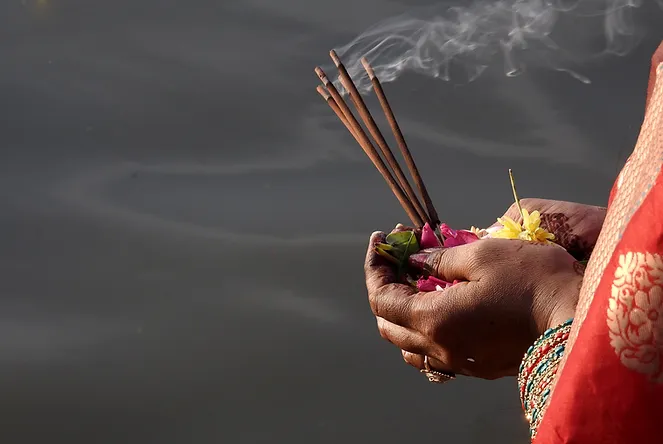For centuries, incense has played a significant role in various cultures and spiritual practices around the world. Its fragrant smoke and captivating aroma have been used in religious ceremonies, meditation practices, and even everyday rituals. Incense comes in various forms, including sticks, cones, and resins, and is often made from a combination of aromatic plant materials and essential oils. In this article, we will explore the uses, benefits, risks, and ritual ideas associated with incense.
Uses of Incense:
-
Spiritual and Religious Practices: Incense has long been used as an integral part of spiritual and religious practices. Its fragrance is believed to purify the air and create a sacred atmosphere, enhancing the connection between individuals and the divine. Many religions, including Buddhism, Hinduism, and Catholicism, incorporate incense into their rituals.
-
Meditation and Mindfulness: The calming and soothing aroma of incense can aid in relaxation and focus during meditation and mindfulness practices. The act of lighting incense can serve as a ritualistic cue, signaling the beginning of a sacred space and helping individuals transition into a state of introspection and tranquility.
-
Aromatherapy: Incense is often used in aromatherapy to promote emotional well-being and create a harmonious ambiance. Different scents are associated with various therapeutic properties. For example, lavender is known for its calming effects, while citrus scents can energize and uplift the mood.
Benefits of Incense:
-
Stress Relief: The use of incense, particularly fragrances such as lavender, sandalwood, or frankincense, can help reduce stress and anxiety. The calming scent can create a soothing environment, aiding relaxation and promoting a sense of peace.
-
Mood Enhancement: Certain scents have the power to uplift mood and create a positive atmosphere. Incense with citrus notes, such as orange or lemon, can help invigorate the senses and promote a feeling of freshness and vitality.
-
Spiritual Connection: Incense has been used for centuries to facilitate spiritual practices and enhance the connection between individuals and their faith or beliefs. The ritual of lighting incense can serve as a symbolic act, focusing the mind and preparing the individual for a deeper spiritual experience.
Risks and Precautions:
While incense can offer various benefits, it is essential to be aware of potential risks and take necessary precautions:
Fire Hazard: As with any open flame, it is crucial to exercise caution when burning incense. Always use a suitable incense holder or burner, place it on a stable surface away from flammable objects, and never leave it unattended.
Ritual Ideas:
-
Cleansing Ritual: Use incense, such as sage or palo santo, to cleanse and purify a space. Light the incense and walk through each room, allowing the fragrant smoke to cleanse the energy and create a fresh start.
-
Meditation Aid: Create a serene meditation space by lighting incense with a scent that promotes relaxation, such as lavender or sandalwood. Focus on the aroma as you enter a state of mindfulness and inner peace.
-
Celebration or Prayer: Incorporate incense into celebratory or prayer rituals to enhance the atmosphere and create a sacred ambiance. Choose a fragrance that aligns with the purpose of the ceremony and use it to mark the beginning or end of the ritual.
In conclusion, incense holds a special place in various cultural and spiritual practices worldwide. It can be a powerful tool for relaxation, focus, and spiritual connection. However, it is essential to be mindful of any potential risks and use incense responsibly. Whether you are seeking tranquility, embarking on a spiritual journey, or simply enjoying the aromatic experience, incense can be a valuable addition to your rituals and daily life.







